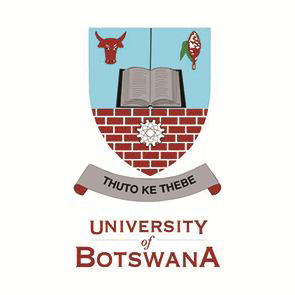Introduction
In an era characterised by rapid technological advancement, shifting consumer demand, and increasing environmental uncertainty, businesses face unprecedented challenges and opportunities. Navigating these dynamic landscapes requires more than traditional approaches, which necessitate a commitment to innovation, sustainability, and adaptability. Organisations must embrace new paradigms that not only drive profitability but also promote social responsibility and environmental stewardship. By fostering a culture of innovation, organizations can discover creative solutions to complex problems, thereby ensuring that they remain competitive in an ever-evolving marketplace. Simultaneously, integrating sustainability into business strategies is no longer optional. It is a critical component of long-term success and global responsibility. The forward path involves rethinking traditional business models, leveraging cutting-edge technologies, and meaningfully engaging stakeholders. The primary objective of this conference is to establish an impactful platform for promoting connections, collaboration, and the exchange of diverse research findings and problem-solving methodologies in the business field. We invite you to submit papers that align with various tracks of the conference.
Conference Structure
The conference seeks to attract a wide range of contributions, both scholarly and industry experts. As such it will include the following: Research Paper presentations; Poster Exhibitions; Post Graduate Symposium and Paper-a-thon; Panel Discussions; and Workshops/Masterclasses.
Conference Subject Areas
The conference covers a variety of business areas, including Marketing; Business Management; Accounting & Finance; Information Systems; Hospitality Management; Tourism Management; Supply Chain Management; Entrepreneurship; Business Theories and Research Methods.
Conference Tracks
The conference focuses on a wide range of cutting-edge topics in today’s dynamic and fast-changing business environment. While it remains open to different topics, specifically it hopes to attract papers on resilience and sustainability; innovation and value creation; new strategies and business models; digital technologies; emerging markets; leadership & governance; opportunity recognition and entrepreneurship; all within the subject areas outlined above.
Special Themes
The conference will also run special themes on:
a) Youth entrepreneurship. Botswana youth suffer from high unemployment and entrepreneurship can be a gamechanger. Discussions will focus around using entrepreneurship as an economic empowerment tool for youth.
b) Special economic zones and hubs. To diversify the economy away from mining, Botswana has adopted a special economic zones (SEZ) strategy among others, building sector hubs to facilitate an export-driven economy. Selibe-Phikwe SEZ has been recognised as a mixed base-metal beneficiation city focusing on iron and steel production, agro-processing, pharmaceutical and medical devises, garments and textiles.
c) Citizen beneficiation. At the heart of the Botswana’s ambitious journey through Vision 2036 is reaching a high income themed “Achieving prosperity for all”. Several citizen economic empowerment initiatives including diamond beneficiation have gained momentum. Successful approaches to beneficiation will be explored.
Key Dates:
Activity | Date |
Submission of Abstracts | 31st December 2024 |
Abstract Acceptance Notification | 15th January 2025 |
Completed Research paper submission deadline | 15th January 2025 |
Returning reviewed papers to Authors | 30th January 2025 |
Print Ready Final Submission | 14th February 2025 |
| |
Poster Proposal & Post-Graduate Symposium Submission | 31st December 2024 |
Poster Proposal & Post Graduate Symposium Acceptance Notification | 31st January 2025 |
Early bird registration deadline | 30th January 2025 |
Conference dates | 17th – 19th March 2025 |
Publication
All conference proceedings shall be published with an ISSN.
High quality papers will be selected for publication in the special issue of the Botswana Journal of Business. The conference will also award best papers.
Conference Fees
- Early bird registration: US$ 300
- Late registration: US$ 350
- Graduate early registration: US$ 100
- Graduate late registration: US$ 150
- Accompanying persons: US$ 100
- Business Community: US$ 200
For more information on templates, editorial, bookings, etc. please visit the link below:
https://conferences.ub.bw/index.php/fobconference2025/ICBIG6. For enquiries please email: fobconference@ub.ac.bw.
Mr. Thuso Mphela Prof. Jaloni Pansiri
Conference Chair Acting Dean
University of Botswana University of Botswana
Faculty of Business Faculty of Business
Gaborone, Botswana Gaborone, Botswana
Author Guidelines
GENERAL GUIDELINES
- All paper submissions will be blind peer -reviewed
- Two categories of paper presentation will be accepted, these are:
- Complete research papers: Papers submitted into this category are where the research work or conceptual/theoretical development have been completed. Authors should submit up to a 5,000 word-paper.
- Working papers: Working papers could be reports, proposals for future research or those for which a substantial amount of the research work or conceptual/theoretical development has already been completed. Authors should submit a 1,300-1,500-word paper, which will be reviewed by the Co-chair for presentation BUT NOT publication.
- All refereed research papers will be published as conference proceedings.
- The best research papers will be considered for publication in Botswana Journal of Business.
- All papers must be original submissions that have not already been published.
- If after evaluation/review and acceptance, you do not wish to publish your full paper, your choice must be clearly communicated to the conference committee, in which case a two-page summary must be submitted for publication after the full paper has been reviewed and accepted
- A maximum of two papers may be presented by one individual and paper reading is NOT allowed.
GUIDELINES FOR CONTRIBUTORS
Format and style
Manuscripts should be in English (preferably UK) and typed (double spaced, except for tables where single spacing is acceptable) with margin of 1.5 inches at the top, bottom, right and left of every page on one side international A4 bond paper. Tabs should be for indents, not spaces. Font used must be Times New Roman Size 12.
The first page (title page) should contain the paper's title, the names, addresses, telephone numbers, fax numbers and email address of the authors, indicating the name of corresponding author.
Abstract
The second page should include the paper’s title and an abstract of not more than 200 words. The abstract should be an accurate representation of the paper’s contents. Major results, conclusions, and/or recommendations should be given with brief details of methods, etc. There should be no indication (other than on the title page) of the identity of the author(s) or the author’s (or authors’) affiliation
Headings
First heading of the body is INTRODUCTION (centered, bold, all caps)
Text follows, using appropriate major headings (centered, bold, all caps) where necessary
Secondary headings are left-justified, bold, first letter of each major word capitalized, with a space above and below the heading. The paper should include the following sections: literature review, methodology, findings, discussion and conclusions.
Tables and Figures: All figures and tables should be given titles, numbered consecutively in Arabic numerals, and referred to within the text.
Keywords: Up to six keywords or descriptors that clearly describe the subject matter of the paper should be provided.
References: Citations in the text should follow the Harvard scheme (i.e. names) of author(s); followed by the year of publication and page numbers where relevant, all in parenthesis.
For journals:
Churchill, G., A., and George, G. P. (1979). “Television and Interpersonal Influences on Adolescent Consumer Learning.” Journal of Consumer Research 6 (2): 23-35.
Internet Articles:
Marshall, A. (1890). Principles of economics: an introductory volume, McMaster University, Canada. Retrieved on 7 Nov. 2006 from http://www.marxists.org/reference/subject/economics/-
marshall/index.htm.
For books:
Zeleny, M. (1982). Multiple Criteria Decision Making. New York: McGraw-Hill.
For a thesis:
Gartside, S. (1994). Helplessness and depression. Unpublished doctoral dissertation, McGill University, Montreal.
For papers from conference proceedings, chapters from book etc.:
Gee, K.P. and Gray, R.H. (Eds.) (1990). The British Accounting Review Research Register. London: Academic Press.
Acknowledgements: Should appear at the end of the paper before the list of references.
Footnotes
It should be kept to a minimum and appear at the end of the paper on a separate page.
Start here to submit a paper to this conference.
Step one of the submission process




